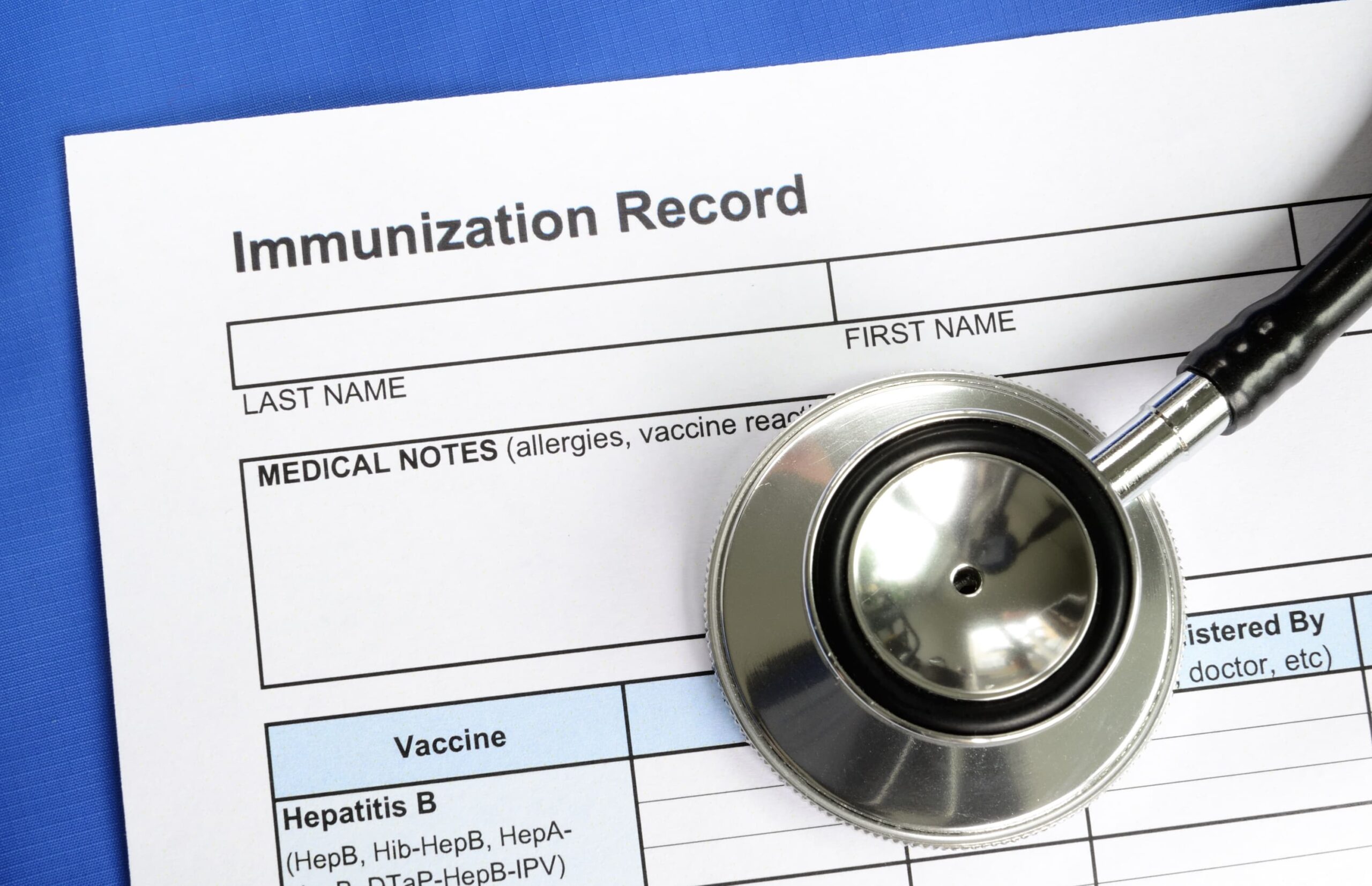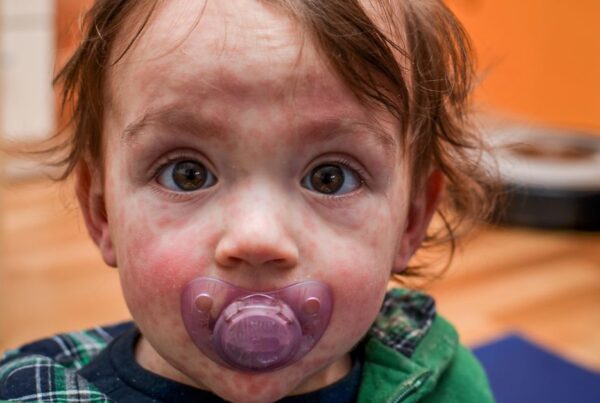Postpartum depression is a well-known risk of motherhood*, but it is not generally recognized as a risk of fatherhood. Research shows that up to 25% of men may experience serious depression in the postpartum period.
 This article covers how to recognize postpartum depression in dads, the risk factors for postpartum depression in dads, and some of the available treatments.
This article covers how to recognize postpartum depression in dads, the risk factors for postpartum depression in dads, and some of the available treatments.
*To learn more about postpartum depression in moms, please see Identifying and Managing Postpartum Depression.
What Is Postpartum Depression?
Postpartum depression is a depressive syndrome that can occur in either parent after the birth of a child. Postpartum depression in men is also known as paternal postpartum depression or paternal perinatal depression.
Symptoms of postpartum depression in either parent may include:
- Feelings of hopelessness, worthlessness, inadequacy, or overwhelm
- Low energy, tiredness, heaviness, fatigue
- Difficulty with sleeping (unrelated to nighttime parenting duties)
- Loss of interest in usual activities
- Less pleasure in life
- Irritability, rage, difficulty moderating emotions
- Flat emotions or feeling emotionally numb
- Unclear thoughts, difficulty with decisions
- Thoughts of self-harm, suicide, or that their family would be better off without them
Postpartum depression is associated with postpartum anxiety in parents. Symptoms of postpartum anxiety include excessive worry about the baby, a feeling of dread that something bad will happen, racing thoughts, digestive problems, heart palpitations, sleep problems, and nausea.
Men with depression are more likely to experience anger attacks, rage, substance abuse, and excessive risk taking. Signs that aren’t always associated with depression.
The Edinburgh Postnatal Depression Scale (EPDS) is a tool that is used by healthcare providers to assess possible perinatal depression in both men and women. This tool is meant to be interpreted by professionals, but it may be helpful to look at its questions.
What Are The Risk Factors For Postpartum Depression In Men?
Any person can get postpartum depression no matter how healthy and well-resourced they are. However, certain risk factors can make some men more vulnerable to postpartum depression.
- Past bouts of depression
- Financial troubles or poverty
- Marital conflict
- Unplanned pregnancy
- Depression in other parent
How Is Postpartum Depression Treated?
Postpartum depression is treated the same way as other depressive syndromes, with either psychotherapy or pharmacotherapy or both.
Supplements For Paternal Postpartum Depression
Supplements that are helpful for other depressive syndromes would likely be helpful for postpartum depression in dads. Some are listed below.
Omega 3 PUFAs (Fish Oil) For Depression
Omega 3 PUFAs are an excellent treatment for depression on their own or as a complement to pharmacotherapy, herbal therapy, or other nutritional therapies. To find a suitable omega 3 supplement for treating depression, look for one with more EPA than DHA. The combined dose of EPA + DHA should be at least 1g.
Magnesium As A Depression Treatment
Magnesium has been studied as a treatment for depression. A randomized clinical trial found that supplementing with 248 mg of magnesium daily for 6 weeks was an effective treatment for mild to moderate depression and that it improved associated anxiety symptoms as well.
Vitamin D & B Complex Vitamins To Treat Depression
Vitamin D and B complex vitamins are required for healthy neurological function. Low intake of B Complex vitamins is associated with more mental health concerns like depression and anxiety. A review of studies assessing these vitamins found that specifically Vitamin B1, Vitamin B12, folate, and vitamin D could help treat anxiety and depression.
Herbal Medicine Treatment Of Depression
Many different herbal medicines are effective for treating depression. Some of my favorites include rhodiola, ashwagandha, holy basil, kava, lion’s mane, lavender, St. John’s wort, bacopa, ginseng, eleutherococcus, and rosemary.
Summary
Postpartum depression is a serious concern for both parents. However, it is under-recognized and under-treated in men. Symptoms and treatment are likely the same as other depressive symptoms. Psychotherapy, pharmacotherapy, and nutritional and herbal treatments may be helpful for postpartum depression in dads.
References:
Fisher, S. D., & Garfield, C. (2016). Opportunities to Detect and Manage Perinatal Depression in Men. American family physician, 93(10), 824–825.
Scarff J. R. (2019). Postpartum Depression in Men. Innovations in clinical neuroscience, 16(5-6), 11–14.
Cameron, E. E., Hunter, D., Sedov, I. D., & Tomfohr-Madsen, L. M. (2017). What do dads want? Treatment preferences for paternal postpartum depression. Journal of affective disorders, 215, 62–70. https://doi.org/10.1016/j.jad.2017.03.031
Pérez C, F., & Brahm M, P. (2017). Depresión posparto en padres: ¿por qué también es importante? [Paternal postpartum depression: Why is it also important?]. Revista chilena de pediatria, 88(5), 582–585. https://doi.org/10.4067/S0370-41062017000500002
Sundström Poromaa, I., Comasco, E., Georgakis, M. K., & Skalkidou, A. (2017). Sex differences in depression during pregnancy and the postpartum period. Journal of neuroscience research, 95(1-2), 719–730. https://doi.org/10.1002/jnr.23859
Cameron, E. E., Sedov, I. D., & Tomfohr-Madsen, L. M. (2016). Prevalence of paternal depression in pregnancy and the postpartum: An updated meta-analysis. Journal of affective disorders, 206, 189–203. https://doi.org/10.1016/j.jad.2016.07.044
Liao, Y., Xie, B., Zhang, H., He, Q., Guo, L., Subramanieapillai, M., Fan, B., Lu, C., & McIntyre, R. S. (2019). Efficacy of omega-3 PUFAs in depression: A meta-analysis. Translational psychiatry, 9(1), 190. https://doi.org/10.1038/s41398-019-0515-5
Mocking, R. J., Harmsen, I., Assies, J., Koeter, M. W., Ruhé, H. G., & Schene, A. H. (2016). Meta-analysis and meta-regression of omega-3 polyunsaturated fatty acid supplementation for major depressive disorder. Translational psychiatry, 6(3), e756. https://doi.org/10.1038/tp.2016.29
Mahdavifar, B., Hosseinzadeh, M., Salehi-Abargouei, A., Mirzaei, M., & Vafa, M. (2021). Dietary intake of B vitamins and their association with depression, anxiety, and stress symptoms: A cross-sectional, population-based survey. Journal of affective disorders, 288, 92–98. https://doi.org/10.1016/j.jad.2021.03.055
Nematolahi, P., Mehrabani, M., Karami-Mohajeri, S., & Dabaghzadeh, F. (2018). Effects of Rosmarinus officinalis L. on memory performance, anxiety, depression, and sleep quality in university students: A randomized clinical trial. Complementary therapies in clinical practice, 30, 24–28. https://doi.org/10.1016/j.ctcp.2017.11.004
Matthey, S., Barnett, B., Kavanagh, D. J., & Howie, P. (2001). Validation of the Edinburgh Postnatal Depression Scale for men, and comparison of item endorsement with their partners. Journal of affective disorders, 64(2-3), 175–184. https://doi.org/10.1016/s0165-0327(00)00236-6
Edmondson OJ, Psychogiou L, Vlachos H, Netsi E, Ramchandani PG. Depression in fathers in the postnatal period: assessment of the Edinburgh Postnatal Depression Scale as a screening measure. J Affect Disord. 2010 Sep;125(1-3):365-8. doi: 10.1016/j.jad.2010.01.069. Epub 2010 Feb 16. PMID: 20163873; PMCID: PMC2927780.
Edmondson OJ, Psychogiou L, Vlachos H, Netsi E, Ramchandani PG. Depression in fathers in the postnatal period: assessment of the Edinburgh Postnatal Depression Scale as a screening measure. J Affect Disord. 2010 Sep;125(1-3):365-8. doi: 10.1016/j.jad.2010.01.069. Epub 2010 Feb 16. PMID: 20163873; PMCID: PMC2927780.
Borges-Vieira, J. G., & Cardoso, C. (2022). Efficacy of B-vitamins and vitamin D therapy in improving depressive and anxiety disorders: a systematic review of randomized controlled trials. Nutritional neuroscience, 1–21. Advance online publication. https://doi.org/10.1080/1028415X.2022.2031494
Ng, Q. X., Venkatanarayanan, N., & Ho, C. Y. (2017). Clinical use of Hypericum perforatum (St John’s wort) in depression: A meta-analysis. Journal of affective disorders, 210, 211–221. https://doi.org/10.1016/j.jad.2016.12.048








